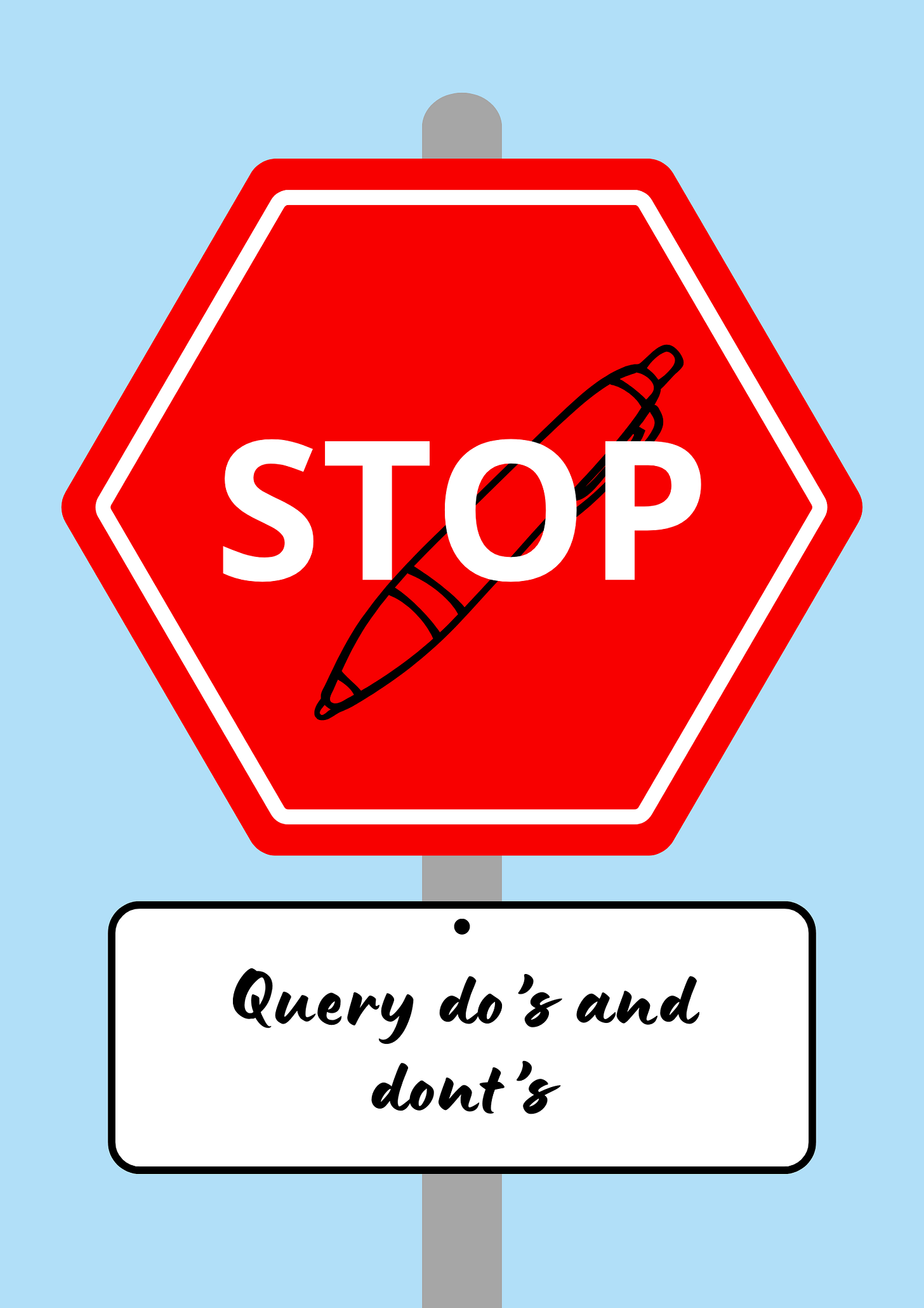Query do's and query don'ts for 2025
Best practices and top tips for writers querying in all genres this year and beyond
Greetings, writer friends and friends who are not writers,
What a week we’ve had behind us. For everyone affected directly, relationally, and psychosomatically by the Los Angeles fires, you are in my heart. GoFundMe.org has created a centralized hub of verified donation efforts to help those in need in California, and this Google Doc (created by the Mutual Aid Network of LA) has a list of shelters and animal centers, along with volunteer opportunities.
On the topic of water (or lack thereof), I want to share a discovery that is making the internet rounds about artificial intelligence, the plague known as “AI.” It takes AI eight ounces of water to generate a response to basic questions (the more complicated your question, the more electricity and water AI needs to use). I was horrified to learn this—I’ve enjoyed generating images for this Substack via AI and I’ve found ChatGPT to be a great research assistant, but that’s a bottle of water per result, so I won’t be availing myself of AI anymore. If you use Google as your search engine, you’ll see that AI results now show up first in search results. To override this nuisance, you want to include “-AI” at the end of your search term.1 Right now, this manual entry is the only way I’ve found to stop Google from wasting water when I’m looking something up that is absolutely not worth wasting water for.
It’s mind-blowing that so many California-based tech companies are forcing water and energy-gobbling artificial intelligence upon us when California is literally on fire? It’s hard, in 2025, to be shocked by hypocrisy and greed, but I’m actually shocked.
Moving on to further challenges in the world of publishing.
Querying is hard. Querying takes grit, savvy, an endless bounty of patience. And it can take many, many rounds over (I’m sorry!) many, many years. Which is why we are in this together over January, during a mini querying intensive. Last week, we looked at everything a query letter should contain in 2025.
This week? It’s query do’s and don’ts.
I very much wanted to organize my “do’s” and “don’ts” into a table format, but Substack doesn’t offer a cell-grid as a tool, and taking screenshots of tables makes it hard for some to read, so, I’ll do my best to make the below list legible. To avoid this being the longest Substack essay ever, you’ll find hyperlinks to previous articles I’ve written about querying to make this entry as comprehensive as possible.
I’m separating these best practices into three components: Conceptualizing the query letter, preparing it, and following up after it’s been sent.
Step 1: Conceptualizing the letter as a whole:
In which we think through our letter before we type it up.
Don’t include the entire synopsis of your story and/or project in your query letter.
Do tease just enough of the story that the agent has to ask for pages—there should be a question posed in your query letter that the agent has to read some of the manuscript to answer. Querying necessitates just the right balance of telling and withholding, so make sure you get that balance right.
Don’t assume you have the right book title to query with just because your work-in-progress has had this name for a long time.
Do ask yourself whether your book title is doing as much heavy lifting as possible in the storytelling department to help the agent grasp the stakes and setting from the opening of your letter. A savvy title will allow the agent to envision your book cover by the letter’s end. A shoddy book title will leave the agent wondering why the book is named what you have named it. Don’t be shoddy this year! Aim for savviness instead.
Don’t self-deprecate.
Do position yourself as a capable emissary for your book. Modern authors are expected to be engaged (and engaging) ambassadors for their books in the real world and the virtual one, shilling their wares, going on podcasts, penning vulnerable personal essays, and generally being extroverted (or faking extroversion) for about 1.5 years during pre-pub, pub and post-pub, after which point they can crawl back into their caves and write another book. Accordingly, agents are looking for professionalism and confidence in our query letters. While reading about your project, agents are going to ask themselves:
“Can I get this person lecture gigs or are they unable to speak in front of crowds?”
“Can I trust that this potential client would do a good job on NPR?”
“Will this writer use the ‘cc’ option incorrectly on emails to their publisher and cause me tons of stress?”
“Is this the kind of person I can trust to go out on book tour and not internally combust?”
If your letter has undercurrent of Eeyore-ism (“I know you probably don’t have time to hear from a nobody like me,” “I don’t have any fancy publications so I probably can’t compete,” “I know I’m older than you probably want your debut authors to be,”) you are handing agents a reason to agree that you’re not their ideal client. They already have a hundred reasons to reject queries from the slush pile, so don’t help them reject yours!
Don’t hide your lack of publications out of shame.
Do the aspirational pivot instead.
This is one of my favorite tricks for query letter writing, the aspirational pivot:




